Detection of Positive Vaccine Bias in Reports of Serious Adverse Events
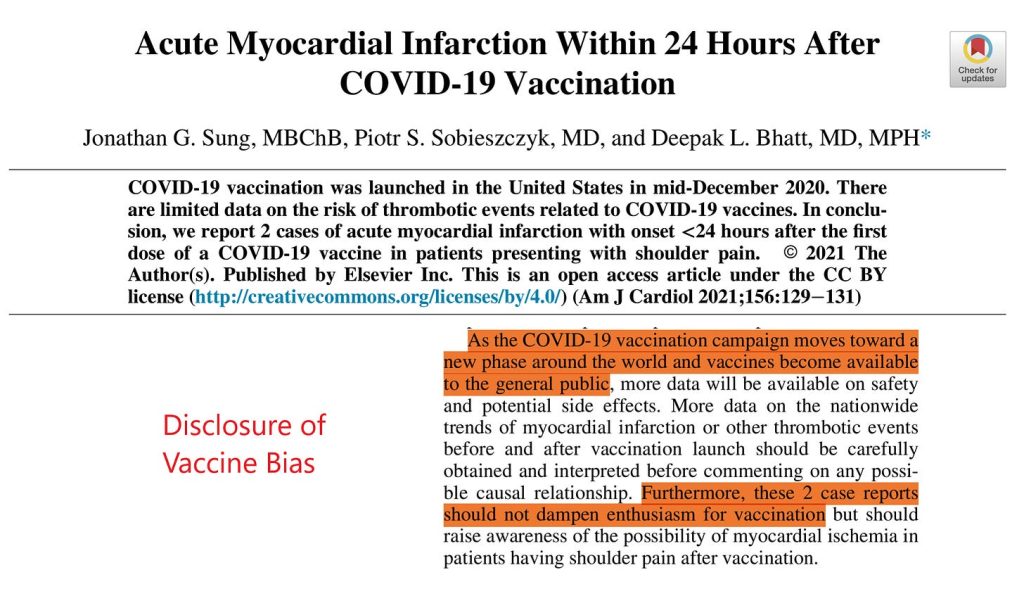
Originally published on the author’s Substack.
Look for Unsupported Statements Plugging the COVID-19 Vaccines while Delivering Bad News on Side Effects
The clinical reality of COVID-19 vaccine myocarditis, blood clots, and other medical disasters seems much larger than available reports in the medical literature. Because the vast majority of academic physicians who produce the worlds universe of medical manuscripts start from a pro-vaccine position, there is undoubtedly publication bias.
Publication bias means that compliant doctors at institutions that mandated the COVID-19 vaccines are disincentivized and may be implicitly prohibited from studying and reporting vaccine side effects. Even compelling papers describing new, important life-threatening conditions may fail to be approved by the institution and never make it to journal submission.
Nevertheless, I have been struck with obvious pro-vaccine bias in papers that are describing horrific adverse events. You can look for these because they are not supported and appear completely out of place. One wonders if these statements are reflecting a true psychological bias of mass formation or if they are intentionally deceptive so the authors do not appear to “dampening enthusiasm” for the novel shots. In some cases, the authors encourage vaccination despite the harms.
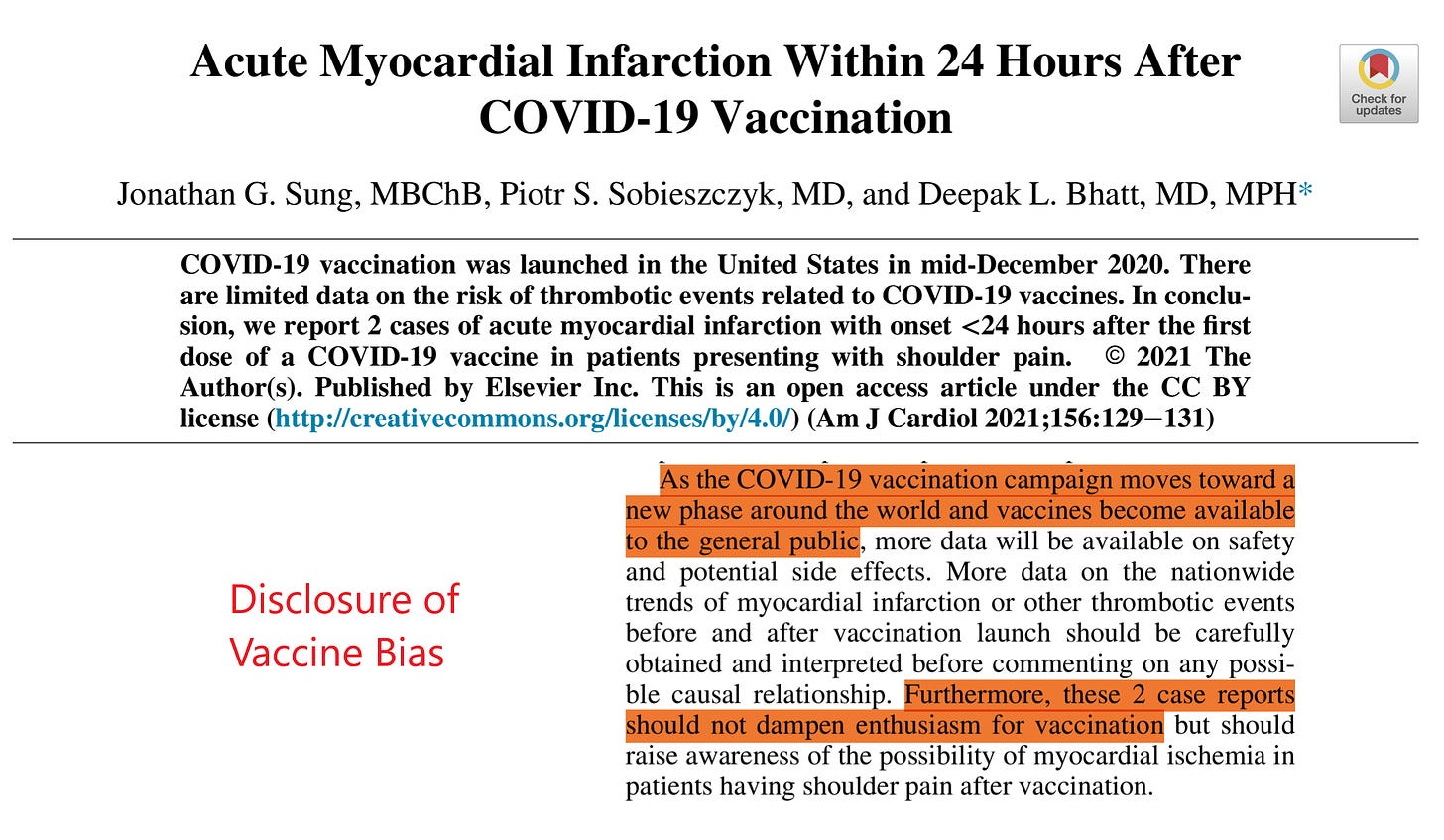
Be wary of glowing praise for the vaccines like “remarkably effective” or “blockbuster” in papers that present no efficacy data. It has been said that flattery will get you nowhere, expect possibly, publication of a COVID-19 vaccine paper in a medical journal.
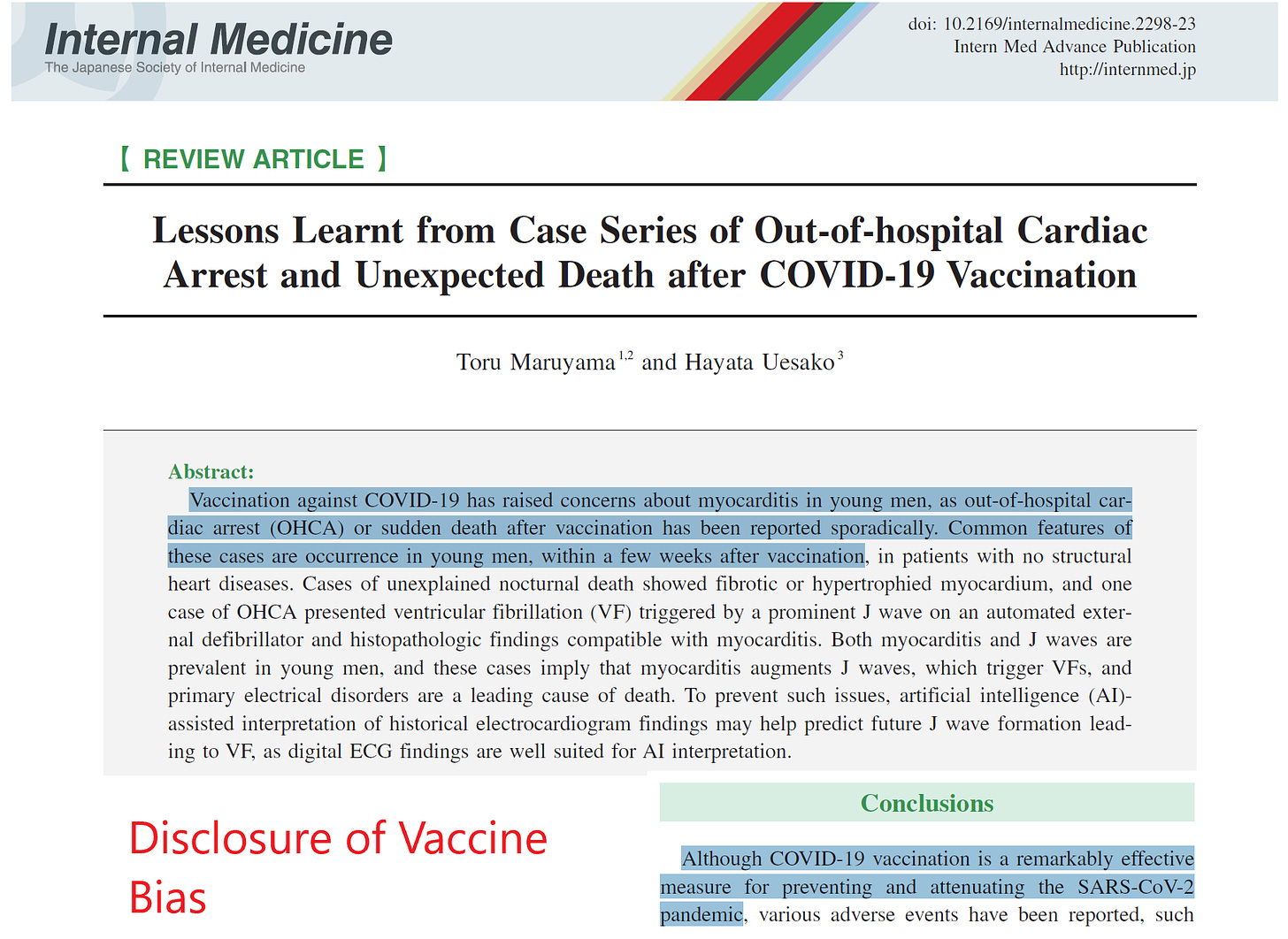
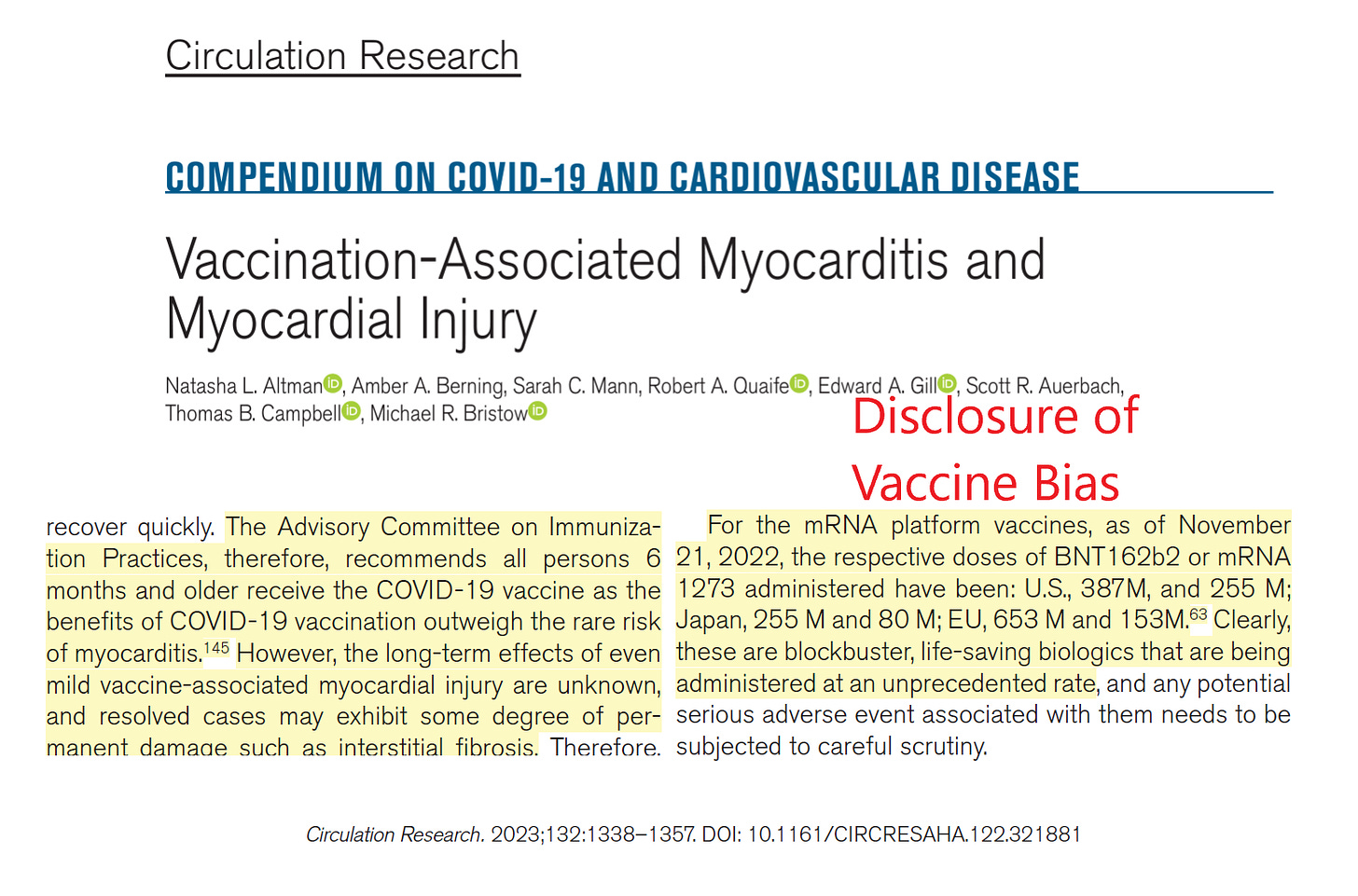
Any time you see “the risks are far outweighed by the benefits” without a formal risk-benefit analysis, you are receiving dangerous pro-vaccine bias. This is particularly true for vaccine induced death. It is very hard to argue that case away and encourage more shots.
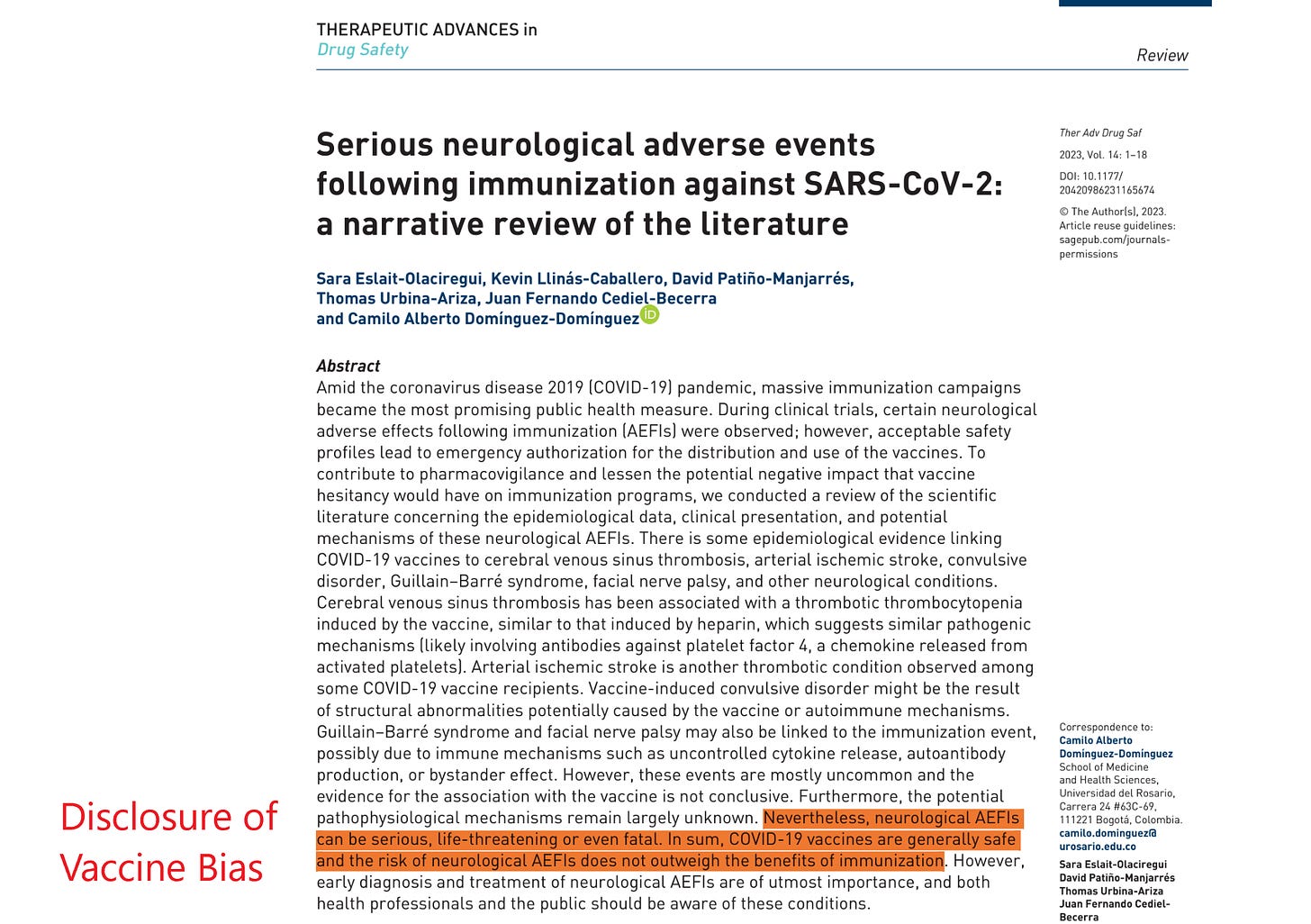
Other obvious statements such as “vaccines have been integral in our pandemic response” or “vaccines have saved millions of lives” or accolades such as “cutting-edge mRNA technology” or “breakthrough” or “cornerstone” seem out of place when the paper is describing vaccine victims either permanently damaged or sadly dead after the shot.
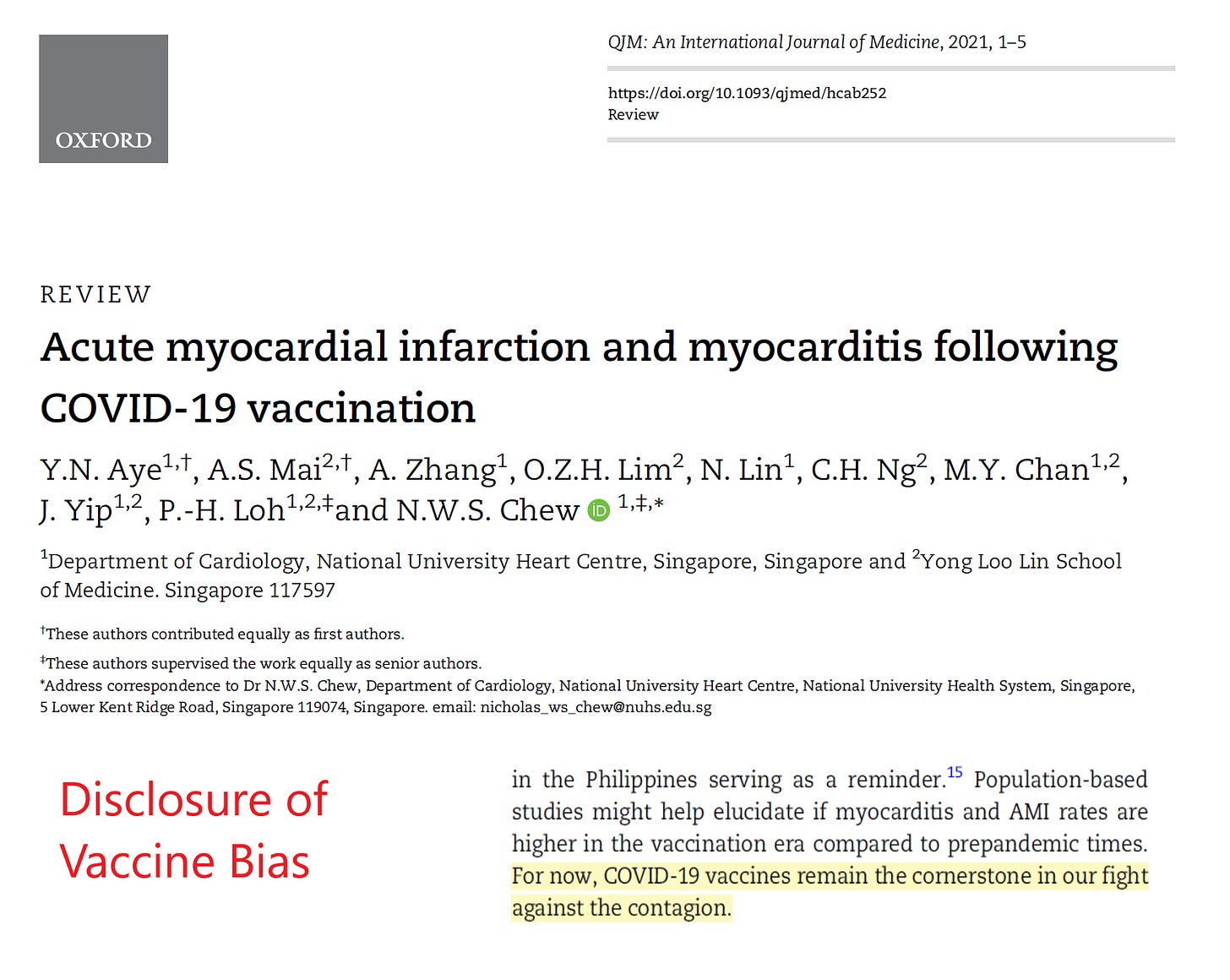
Probably the most severe form of positive vaccine bias and hubris would be “the vaccines are indicated or recommended for everyone” when a manuscript is not evaluating the overall population benefit it should not be making recommendations.
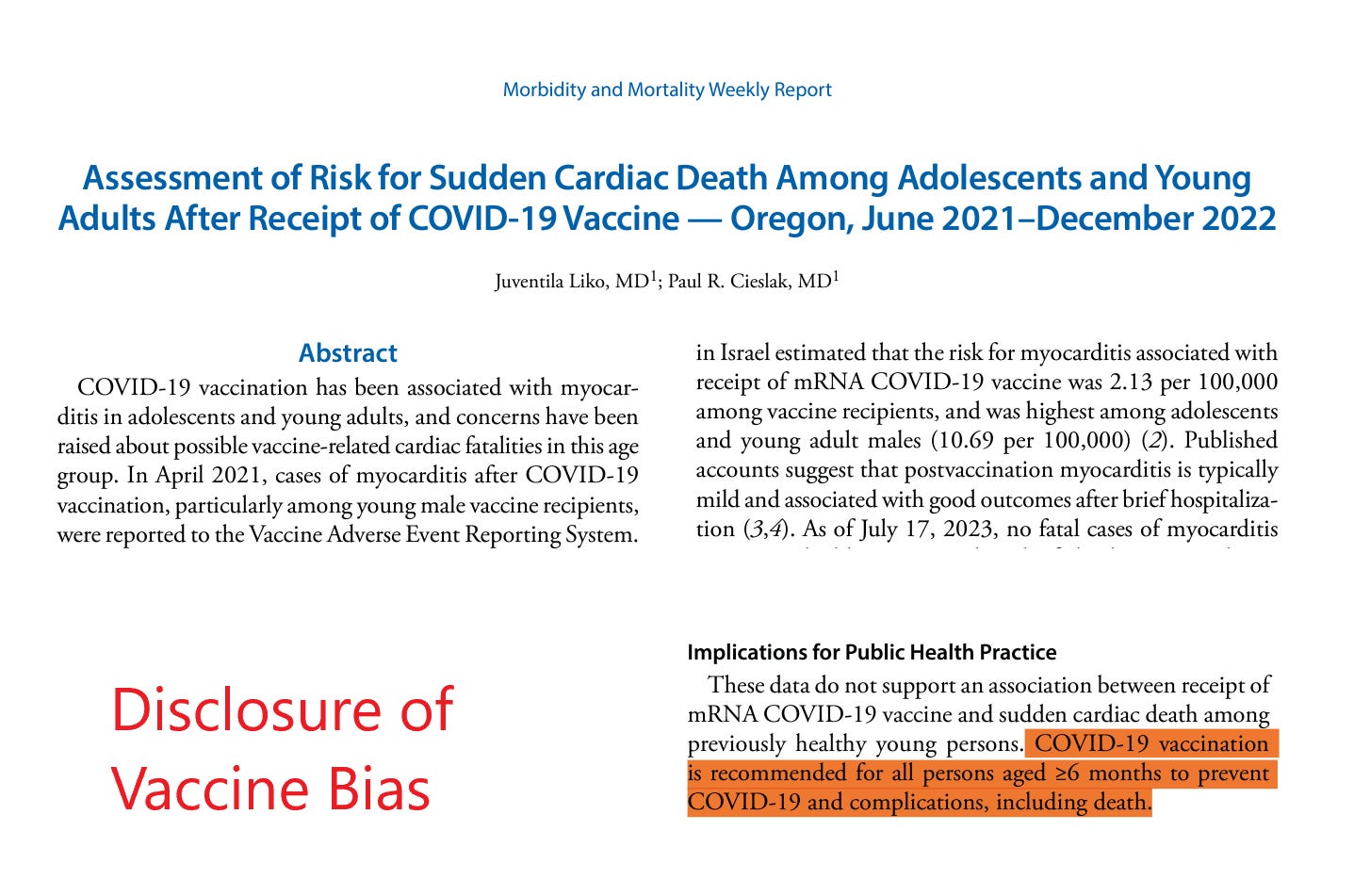
I hope these examples are helpful. The goal of reviewing papers is to evaluate the data yourself and in the context of vaccine side effects, overall risk-benefit statements by likely vaccinated authors from mandating institutions should be freely disposable.
One of our country’s most important freedoms is that of free speech.
Agree with this essay? Disagree? Join the debate by writing to DailyClout HERE.




